This is the letter I sent yesterday to the New York Review of Books.
Amy Knight‘s “Russia’s Magnitsky affair and how it comes closer to Donald Trump” in the New York Review of Books Feb 22, 2018, is so full of egregious errors of fact, that I shall just start at the beginning, and link to evidence proving either bad faith or bad journalism. Essentially, Knight here is not a reporter, she is William Browder‘s stenographer. I link to the article here and here so as to give readers a context and not repeat too much.
First readers have to know that this is about William Browder’s attempt to conflate a scam against the Russian Treasury in 2007 with his tax evasion against the Treasury in 2002. Dates matter! If you are confused, that is the purpose!
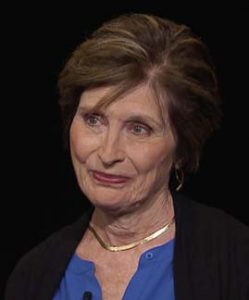
To start, Knight writes, “Denis Katsyv, was accused by the US government of using laundered money from a 2007 Russian tax fraud to buy millions of dollars’ worth of Manhattan real estate.” [The Russian Katsyv is owner of Prevezon, a real estate holding company which he bought after the fraud.]
The fraud was a scam to claim fake legal charges to be deducted from taxes and yield fake refunds. A big deal, the claim was for a $230-million refund.
Katsyv is accused of laundering $1.9 million, less than 2% of the amount stolen. Raises the question why didn‘t the DOJ, which declares it has key bank transfer documents, go after any of the others? The answer is William Browder chose him for his own reasons. Knight says he brought his complaint to the DOJ, but doesn‘t explain why he targeted such a minor player. Most likely a political choice, because Katsyv’s father had a top job in Russia railroads and he figured the Americans would go after him.
She writes, “The fraud, which was discovered by a Russian accountant named Sergei Magnitsky…”
*No. The first clue to the fraud was filed with police in an April 9, 2008 complaint by Rimma Starova, a director of Browder’s purloined shell companies. Then in July 2008, Browder‘s group filed complaints, as reported in the New York Times. Magnitsky didn‘t speak to authorities about the case till six months later in testimony Oct 2008.
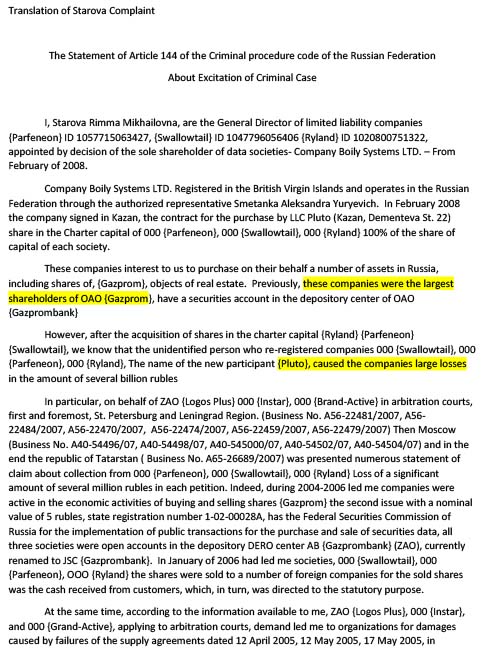
She writes, “Browder was banned from entering Russia in November 2005, labelled a threat to national security and forced to relocate to London.”
*No, he was banned from returning to Russia after authorities‘ futile attempts to get him to pay $70 million in evaded taxes. See Russian govt charge against Browder.
She says, “Four months later, in June 2007, Kuznetsov and his colleague Pavel Karpov presided over a raid of Hermitage’s Moscow offices, along with those of its attorneys, Firestone Duncan. On the pretext that they were investigating Hermitage for tax evasion…”
*Pretext? Regional and federal tax authorities had been going after Browder‘s tax evasion for five years, from 2002. See Russian charge above.
“…the officers stole corporate documents and official seals, which they used to illegally transfer ownership of three Hermitage companies to a criminal organisation associated with a convicted fraudster, Dmitri Klyuev.”
*Stole? Authorities seeking evidence of tax evasion took documents. Why is that stealing?
“Illegally transfer.”
*Knight provides no proof the officers did that.
She says, “Magnitsky was, at the time, an employee of Firestone Duncan, which provided auditing services to Hermitage. Hermitage enlisted him to investigate the circumstances surrounding the [June] raid.”
*No evidence of that. Magnitsky later said he found out about the theft of the companies in October 2007, although HSBC, the Hermitage trustee, reported it just a month after it occurred, in July 2007. A curious delay to October.
“The same MVD officers who oversaw the raid, Karpov and Kuznetsov, had Magnitsky arrested for tax evasion on Hermitage’s behalf in November 2008, after he testified against them to the Russian prosecutor’s office.”
*Wrong. Look at Magnitsky‘s 2008 testimonies. He does not accuse Karpov and Kuznetsov of anything.
“Russian human rights groups established that Magnitsky was subjected to treatment by prison officials comparable to torture, apparently to get him to retract his statements.”
*No proof. The only legitimate report, by the Public Oversight Commission for Human Rights, does not say that.
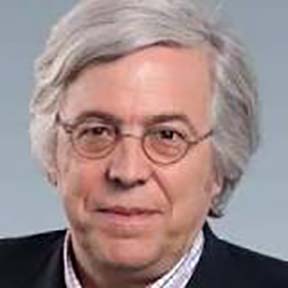
“Andreas Gross, a Swiss member of the Parliamentary Assembly of the Council of Europe (an international organisation dedicated to upholding human rights), observed in his exhaustive, meticulously documented report on the case: Instead of receiving the urgently needed treatment, Sergei Magnitsky was ‘tranquillised’ by a beating with rubber batons, handcuffed and thrown into a holding cell, alone and without any medical attention.
*Knight earlier cites William H. Pauley III, the presiding judge in the Prevezon trial, saying, there may have been more to this money laundering case than a few luxury condominiums. However, she does not cite his statement in the Prevezon pre-trial hearing May 3, 2017 that the Gross report, which he said was based essentially on testimony by paid Browder staffers, “suffers from a lack of trustworthiness… There doesn’t appear to have ever been an actual hearing conducted….In other words, the Gross report is some piece of work and I mean that in hyperbole.” Pauley on Gross report
Knight says that Russian authorities revisited an old tax dispute with Hermitage involving two shell companies set up by the hedge fund in the region of Kalmykia that offered significant tax breaks to firms that invested their profits there and employed disabled people. She says “the case had been closed for lack of evidence in 2005, but it was reopened in 2008, shortly after Magnitsky testified about the office raid.
*No proof, because it is untrue. Case was closed locally as the result of a payoff, proved later, and then reopened. Two Browder companies were accused in 2003 of illegally reducing federal tax by not hiring disabled people or cutting regional tax by not investing in the republic‘s economy. Instead of 35%, they had paid 5.5%. The Ministry of Internal Affairs of the Kalmykh Republic filed criminal charges of tax evasion against Hermitage and Browder in 2004. You see this above.
*Magnitsky was called to testify in October 2006 on the tax charges. Not 2008. Here is the testimony.
“Why did Russian authorities at the highest level go to such lengths – allowing Magnitsky to be arrested and tortured to death in prison”
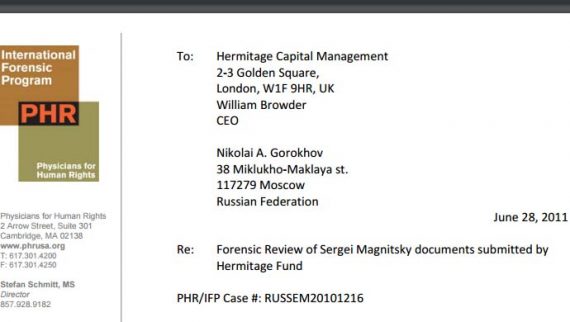
*Well they didn‘t. This is one of Browder‘s most egregious lies. He sent 44 documents to the Physicians for Human Rights to get them to proclaim that Magnitsky was murdered in prison. Instead, they said he died from medical neglect.
“and reopening the tax charges against him and Browder – to cover up a crime perpetrated at the expense of the Russian government by mid-level officials like Kuznetsov and Karpov?”
*The Russians had been trying to get the evaded taxes for years. Federal authorities discovered that local officials had been paid off to drop the case. So it was moved to the feds.
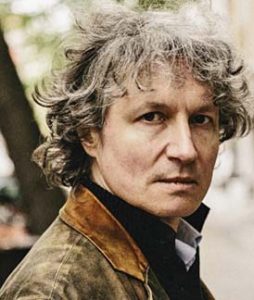
Knight talks about the English-language film by Andrei Nekrasov, “The Magnitsky Act: Behind the Scenes,” which was screened at the Newseum in Washington, DC, in June 2016. She says that Nekrasov denies that Magnitsky was deprived of medical care and beaten shortly before his death. Valerii Borshchev, the chairman of a Russian public commission that concluded that Magnitsky’s death was the result of torture he suffered in prison, was outraged by the film: It negates everything we did.
*However, the Public Oversight Commission for Human Rights, Borshchev‘s own organization, does not say he died of torture. Why is he now claiming this?
Speaking as a journalist, I find this next part really surprising: “Nekrasov insisted in an email to me that, despite reports to the contrary, Veselnitskaya was not involved in making or promoting his film. But the film reproduces video clips of Browder running away as he is being served with a subpoena to testify in the Prevezon case and of his April 2015 deposition, both of which were likely passed on to Nekrasov by Prevezon’s defence team.”
*So what? I get a lot of information from lawyers. It doesn‘t mean they are making or promoting my work. This is insulting to readers. And to journalists.
“[Rep.] Rohrabacher, known to be a supporter of the Kremlin, dutifully promoted the film in Washington.”
*Crudely insulting McCarthyism. To have a different view on the ColdWar 2.0 means “supporting the Kremlin?” Maybe it means avoiding a war. “Dutifully?” Does Knight have evidence he was paid to do this? A truly scurrilous even defamatory charge.
“Glenn Simpson of the firm Fusion GPS … had been hired by Prevezon’s defence team to gather evidence against Browder and serve him with subpoenas. Amazingly, Simpson claimed that his firm did not believe that its work for Prevezon benefited the Russian government, despite the fact that his materials against Browder were used by Veselnitskaya and Akhmetshin for lobbying against the Magnitsky Act.”
*No, he was working for lawyers defending a client in a U.S. lawsuit. Full stop. Is that no longer permitted?
“Alexander Perepilichny (sic), a Russian oligarch who gave Browder documents that incriminated a Russian tax official in the Hermitage fraud, dropped dead outside his London home at age 44 in November 2012. As the inquest into his death continues, a highly classified 2016 US intelligence report on Russian political assassinations is said to assert that Perepilichny was killed on orders from the Kremlin.”
*Oligarch? He was a minor finance guy who worked with Intercommerz, one of the two banks that first received the funds that moved the cash from the tax fraud. He had managed the money of a tax official who was involved in the fraud. He was not a whistle-blower, but when things got hot, he fled Moscow. Perepilichny collapsed after a run, with no evidence of why he died. But why let a good conspiracy theory go to waste! (“Is said to?” Is that journalism?)
“More recently, a lawyer for the Magnitsky family, Nikolai Gorokhov, almost died after a mysterious fall from his apartment window in Moscow in March 2017, shortly before he was to testify in the Prevezon case.”
*Gorokhov was trying to pull a bathtub hoisted through a window into his apartment, and the crane was obviously run by the FSB. (joke)
She writes, “Browder has said many times that the Kremlin would like to assassinate him. One wonders why he still risks fighting for the Magnitsky cause.”
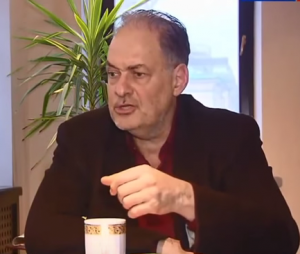
Eric Kraus, a French banker I met in Moscow, asked the same question. He told me, “Early on in the story, after Browder had been refused entry into Russia and Magnitsky was still very much alive, I was still chief strategist for a Russian bank, and I needed to understand what was going on. I telephoned Bill to ask him a few questions.”
“Initially, he was typically charming when telling his story. He confirmed his previous claim that he and his investors had lost no money with the theft of the offshores, which were empty shells.”
“This begged one question. So, I had to ask him: “Bill, as long as I have known you, you have been singularly focused on the bottom line and your investors‘ interests. Why is it that you are currently spending all of your time and millions of dollars in legal and PR fees in a crusade to recover money for the Russian taxpayer whom previously you showed no interest in whatsoever?”
“Bill‘s voice went dead cold. He replied, ˜No one has ever asked me this question before.‘
It was of course to build the story to block the Russians collecting his evaded taxes. A goal at which he has brilliantly succeeded, helped by journalist/stenographers who find obtaining evidence irrelevant.
Click here to see how the NYRB answered my letter.



Don’t forget Alex Krainer’s book — banned on Amazon — that thoroughly debunked Browder’s lies. The book is now published and re-titled to “Grand Deception: The Browder Hoax” (thanks for a small not-for-profit Berlin based startup) and is available on https://thirdalliance.ch/product/grand-deception-the-browder-hoax/
Pingback: NYRB refuses to run letter exposing article abt Browder-Magnitsky as fake – The Komisar Scoop
Pingback: 20 fake US media articles on the Browder Magnitsky hoax and one honest reporter (from Cyprus) – The Komisar Scoop
Thank you for this letter.